Mastering for Country Music
Quick Answer
Mastering for Country Music is the process of preparing a country song, EP, or Album for distribution while keeping the unique sonic characteristics of country music in mind. Because country music varies greatly from sub-genre to sub-genre, the processing used when mastering for country music varies as well.
Mastering for Country Music in Detail
Like most genres, country music can be broken down into distinct sub-genres - each with a unique set of characteristics, instrumentation, vocal stylings, production elements, and other factors that will ultimately affect the mastering process.

Country music has distinct sub-genres - all of which affect how the music is mastered.
Each sub-genre will need to be mastered differently to uphold what both artists and listeners expect when listening to a country record of that sub-genre. Although there are many sub-genres, let’s focus on three and then detail how each sub-genre will most likely be mastered .

The sub-genres share common instrumentation, but each offers unique compositions and processing types.
Hopefully, you can use the information offered here to best master your music using your mastering setup, or to find a mastering engineer that will master your music according to how it should be mastered.
However you choose to use this information, at any point feel free to send us a mix of yours here:
We’ll master it for you and send you a free mastered sample for you to review.
The sub-genres we’ll be covering here include Traditional Country, Pop Country, and Hip-Hop Country. Again, each utilizes unique instrumentation and processing that will inevitably affect how they are mastered.
How to Master Traditional Country Music
Traditional Country Music is often characterized by acoustic instrumentation with mild electric guitars, basses, and acoustic drum sets , and needs to be mastered with these elements in mind. When mastering traditional country music, retaining transients and detail while establishing a reasonably loud listening level is important.
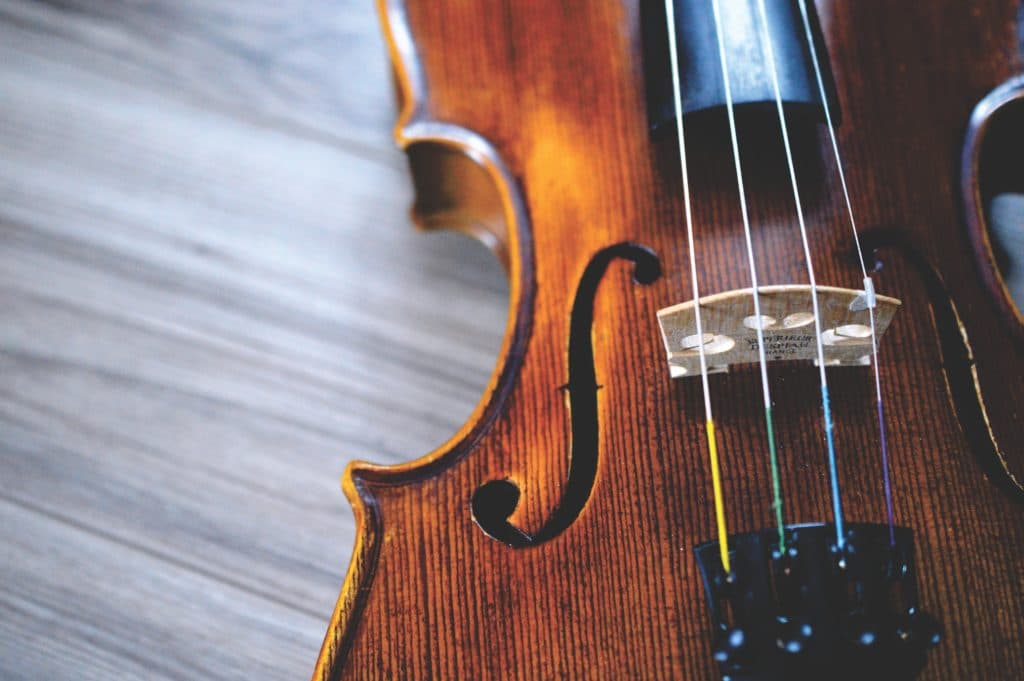
Traditional country music emphasizes acoustic instrumentation.
In many ways, traditional country music has its roots in folk and mountain music - meaning that the instrumentation used will be primarily acoustic, and include prominent vocals. Granted, traditional country music can be thought of as an evolved form of this classic folk and mountain music, as it may include elements of rock and include more complex instrumentation.

Typically, acoustic drum sets are using in traditional country music.
Traditional country music often includes:
- Acoustic Drums
- Electric Guitars
- Acoustic Guitars
- Violins
- Less Processed, or Natural Sounding Vocals
- Banjo
- Upright Bass
- Electric Bass
Although this doesn’t include the entirety of what can be included in a traditional country song, it does cover the majority of traditional country compositions.
So what does this mean for mastering?
Traditional country music typically prides itself on a clear and natural sound - one in which the details of the instruments can be heard, and each instrument occupies a dedicated sonic space in the frequency spectrum.

In a traditional country music master, all of the instruments should be clear and easily perceived.
This means that a mastering engineer will need to both uphold and if possible, augment the natural sound of the recording. With that said, excessive processing is rarely if ever introduced will mastering traditional country music.
Let’s take a quick look at how this mentality may affect various forms of processing.
Compression and Equalization for Traditional Country Music
As you probably guessed, both compression and equalization will need to be introduced subtly.
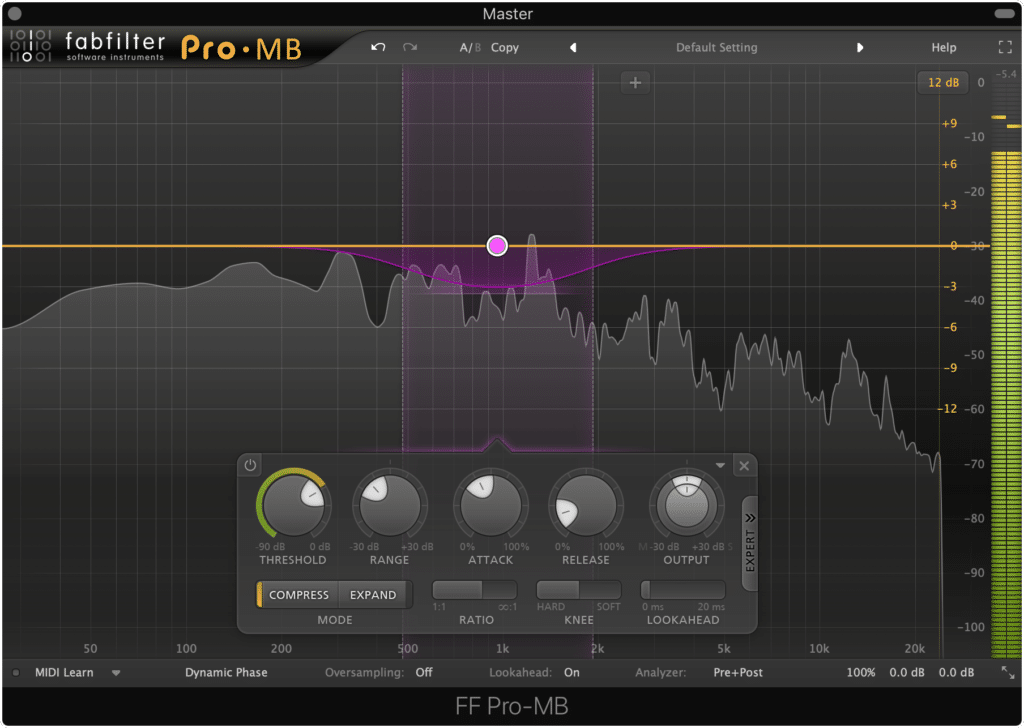
Minimal compression is used while mastering this sub-genre.
If compression is needed at all, it will be best to set a modest ratio with a soft knee to keep it sounding natural. Next, a longer attack time with a quicker release will ensure that the compressor doesn’t engage until after the transient has occurred and that the compressor releases the signal soon after compressing.
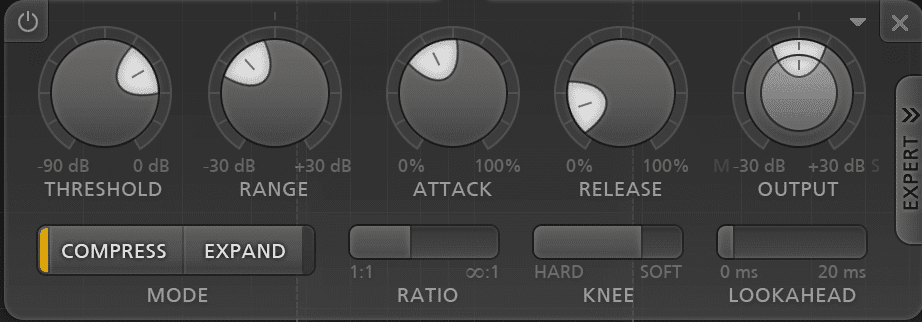
A modest ratio, with a soft-knee, are good settings when compressing this sub-genre.
This means that the compressor will only engage when the signal is too dynamic, not when the transient occurs, and not during unrelated parts of the signal. In other words, the signal will retain its transients and detail instead of becoming unintelligible or blurred from the compression.
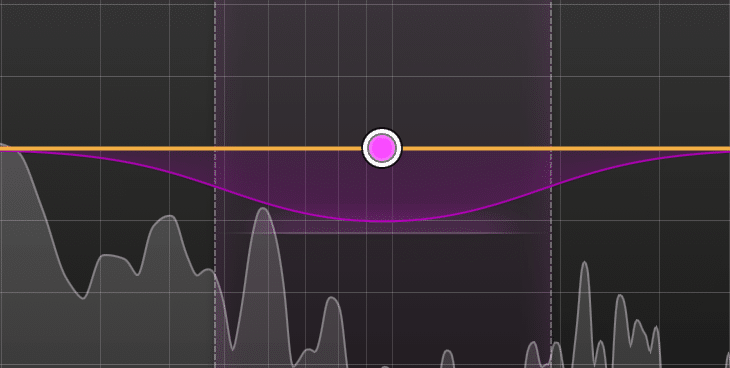
A multi-band compressor will allow you to focus on just the desired frequencies.
Also, a multi-band compressor is best - this way the frequency range needing compression will be compressed, without unrelated signals being compressed.
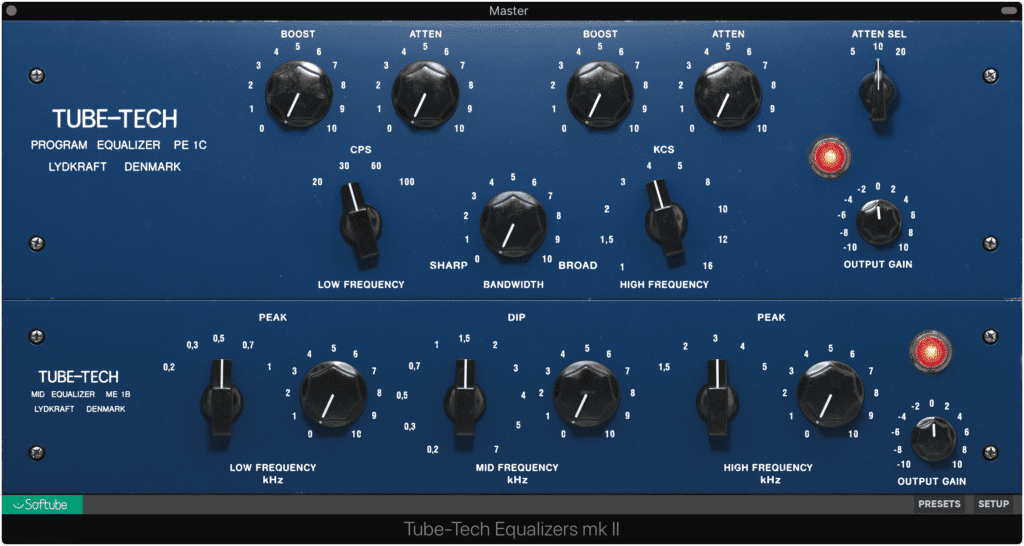
It may be best not to use equalizers that introduce harmonic distortion, such as this one pictured here.
When using equalization, be sure that it doesn’t color the signal too intensely. Some equalizers introduce harmonic distortion which may be useful in some circumstances but are best left for plugins specifically designed for harmonic generation (unless you’re using hardware equipment).
Additionally, equalization is best kept to a minimum, as excessive equalization will not only alter the frequency in a noticeable way but also introduce unwanted phase distortion.
In short, use compression and equalization in a minimalistic manner.
Distortion and Harmonic Excitement for Traditional Country Music
When mastering traditional country music, a small amount of distortion in the form of harmonic generation can be a good thing - but as you may have imagined, doing so excessively is problematic for this sub-genre. Instead of harmonic generation, harmonic excitement may be the best option when affecting a traditional country recording’s harmonics.
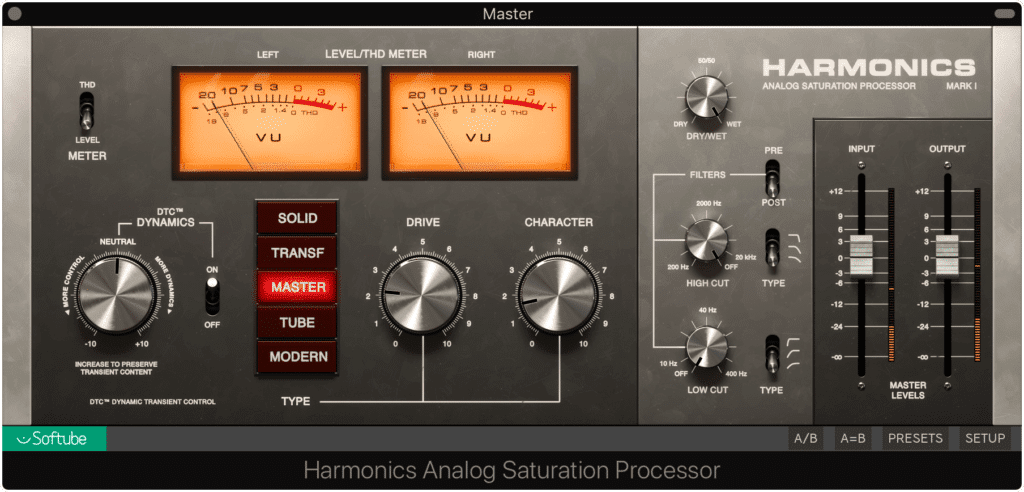
Keep harmonic generation to a minimum as well.
When acoustic instrumentation is recorded in the best possible way, their harmonics or overtones are clearly heard. This means that harmonics play a huge role during the tracking portion of traditional country music.
So to what extent should these natural harmonics be changed or altered?
As stated a moment ago, adding a small amount of harmonic generation can certainly benefit a traditional country song; however, introducing harmonic excitement, or in other words, amplifying existing harmonics instead of creating new harmonics can be the best option.
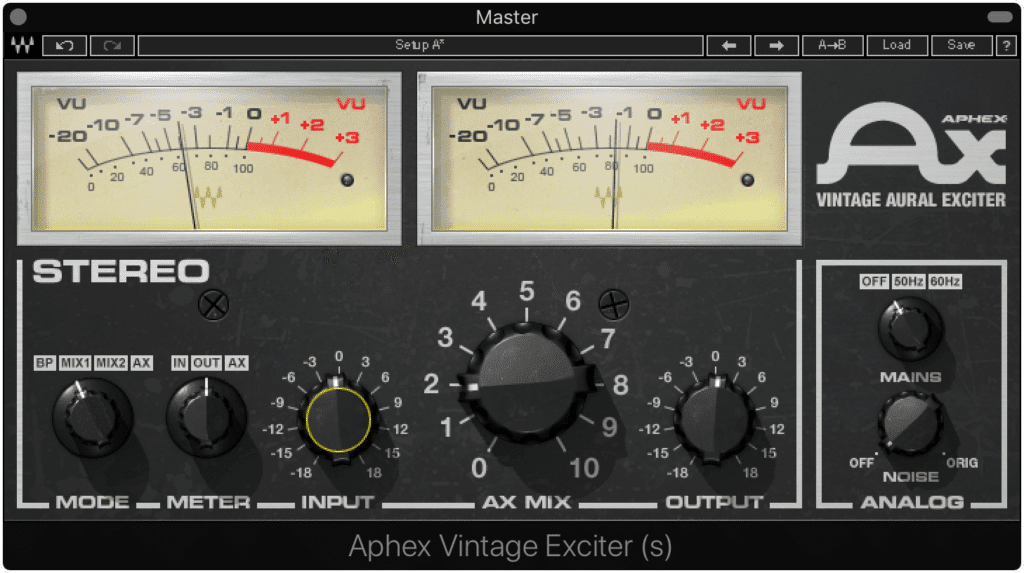
Harmonic excitement will be best for amplifying existing harmonics, instead of generating new ones.
This way, harmonics that were not recorded originally and did not occur naturally won’t be introduced, while harmonics that were originally recorded will be amplified and made more apparent.
A good way to accomplish harmonic excitement is with any harmonic exciter plugin - one popular option being the Wave Aural Exciter.
Limiting for Traditional Country Music
Limiting should also be introduced very subtly when mastering traditional country music, as excessive limiting introduces unwanted distortions and can severely truncate a mix’s transients and dynamic range.
Furthermore, listeners of traditional country music do not expect the masters to be made excessively loud, meaning you don’t need to use a limiter for significant amplification.

Listeners of traditional country music do not expect the masters to be made significantly loud.
For this sub-genre, the best way to use limiting is as a means of protecting against clipping distortion , or peaks that are louder than normal. With that said, the limiter will simply be used for low to moderate amplification, and as a ceiling for any peaks.
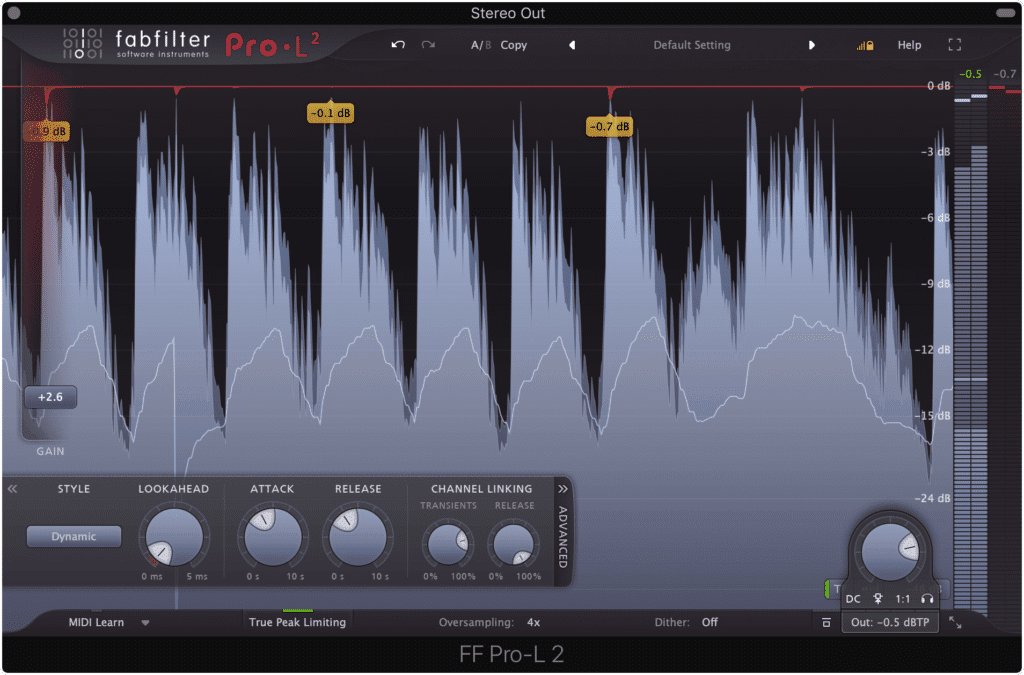
Mild limiting used primarily for peak protection will be the best option for this sub-genre.
This way, your master is loud enough to be enjoyed, but not so loud that it loses its detail or natural sound.
If you have a country song that you'd like to hear mastered, send it to us here:
We’ll master it for you and send you a free mastered sample for you to review.
How to Master Pop Country Music
Pop Country Music is characterized by a blend of country and pop instrumentation, meaning some of the acoustic instruments may be replaced by electric or digital processing. When mastering pop country music, you will need to create a competitively loud master that more closely mimics a pop master.

In pop country music some traditional elements have been replaced with digital processing.
Whereas creators of traditional country music are more focused on creating a natural-sounding master, creators of pop-country are more focus on creating a polished and processed sound. The amount of compression used, the frequency response and the overall loudness of a pop-country master closely resembles a pop master.
With that said, let’s look at how the competitive nature of a pop-country master affects how processing is utilized during mastering.
If you’d like to learn more about mastering pop music, check out our blog post on the topic:
It goes into greater detail about how you can master pop music, and the sonic characteristics and processing that make a pop master unique
Compression and Equalization for Pop Country Music
During a pop-country mastering session, both compression and equalization can be introduced more aggressively to both prepare a mix for louder sound, and to accent certain frequencies that make the master sound more upfront and louder.
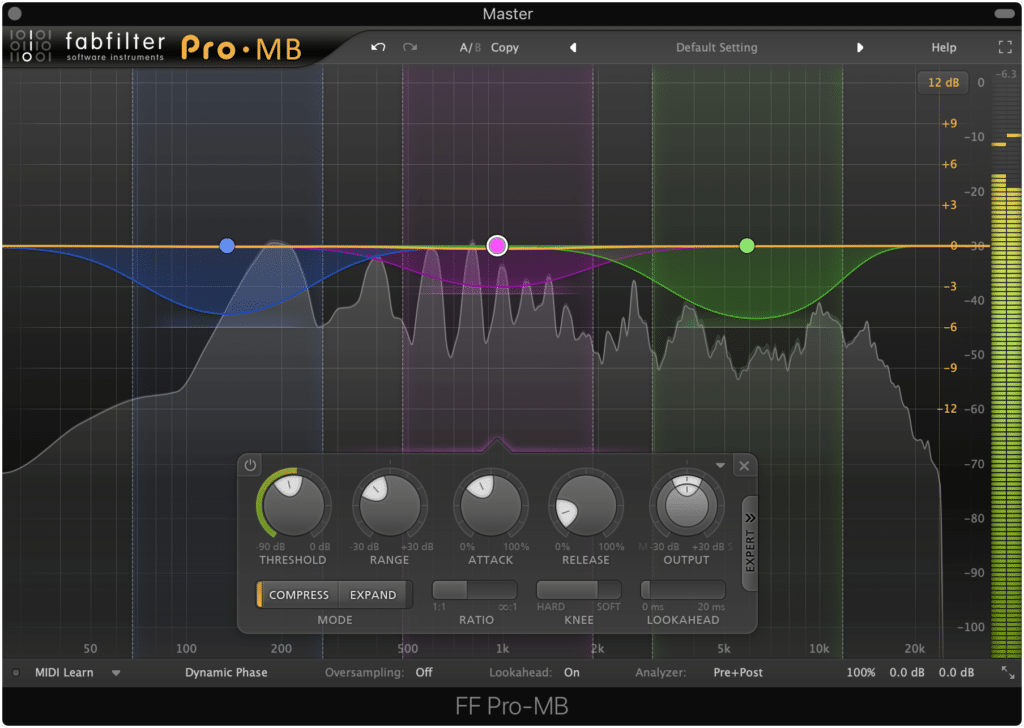
More significant compression can be used.
When mastering this sub-genre, compressing transients becomes a way of pushing the quieter aspects of the mix into a more easily perceived territory. Essentially, by compressing the loudest aspects of a mix, the quieter aspects can be amplified, until they are almost as loud as the loudest part of the mix.
Doing this creates an upfront sound, one that allows the master to translate well on almost all consumer-grade listening devices.

Greater compression and limiting results in a more upfront sound that can translate well on consumer-grade listening equipment.
A compressor setting of a longer attack, shorter release time with a more aggressive ratio and hard-knee setting will work well when mastering pop country music. Be sure not to compress significantly, or more than needed, but enough to allow for the quieter aspects of the recording to be pushed into louder territory during subsequent limiting.
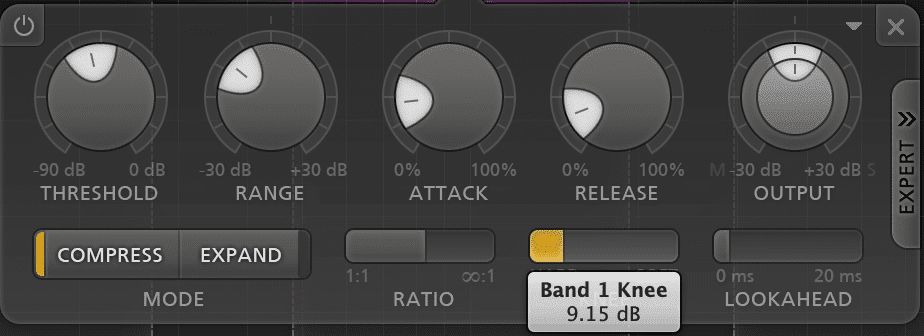
A hard knee with a moderate ratio will be better for heavier compression.
When it comes to equalization, a mid-side equalizer will work best, as it will allow you the control needed to emphasize certain aspects of the recording. By boosting the side image of the equalizer, you can simultaneously widen the stereo image, and make the high frequencies more apparent.
Considering most pop and pop-country compositions and masters include significant high-frequency range instrumentation, boosting these frequencies will be welcomed by listeners . With that in mind, not including an accentuated high-frequency range may be slightly off-putting to listeners that have come to expect that sound.
Distortion and Harmonic Excitement for Pop Country Music
Considering a “natural sound” isn’t as valued in a pop-country master as it is in a traditional country master, more harmonic generation can be introduced.
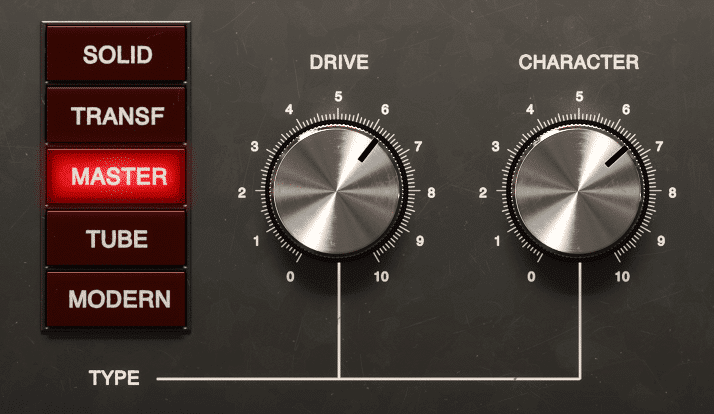
More aggressive harmonic generation can be implemented as well.
This means that distortion plugins can be utilized more aggressively in order to create a more upfront sound.
By introducing somewhat significant harmonic generation, any sonic information that is quieter than these harmonics will, in turn, be masked by these harmonics. This means that the very nuanced details of a recording be replaced by harmonics.
With that said, distortion in the form of harmonic generation will make the already perceivable instrumentation that much more perceivable.
Additionally, harmonic excitement can be used to make the naturally occurring harmonics of a signal more perceivable . When combined with harmonic generation, harmonic excitement can be utilized to create a polished sounding pop-country master.
Limiting for Pop Country Music
As you may have imagined from reading the section on compressing pop country music, limiting will play a significant role in mastering this sub-genre. Unfortunately, in order to stay competitive with other pop-country masters, some dynamics and transients will need to be sacrificed for a louder master.
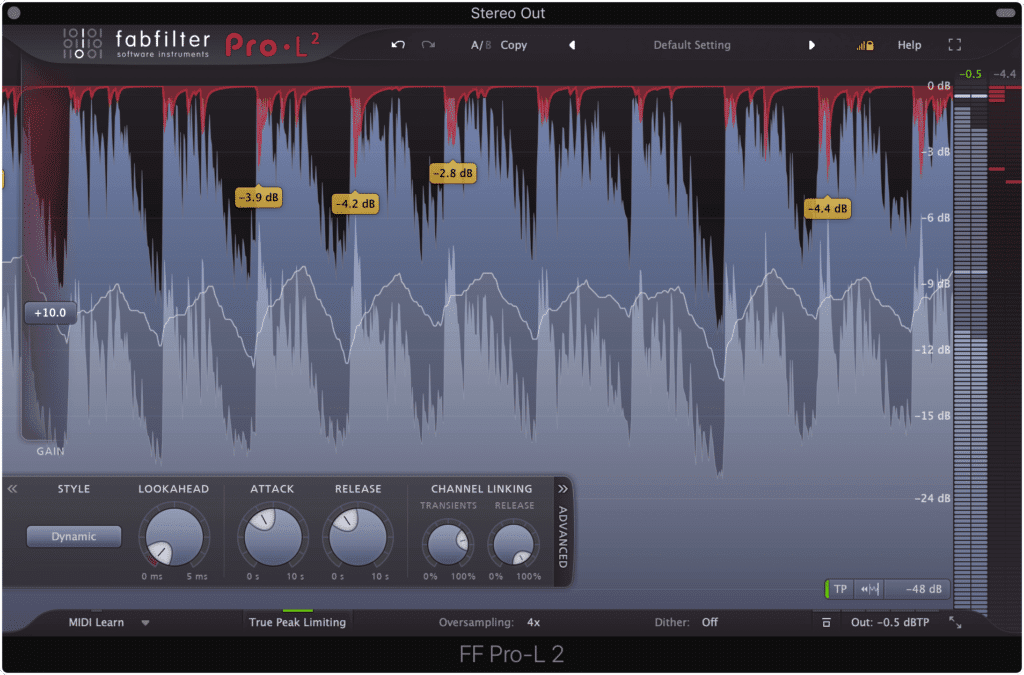
Pop country masters are usually much louder than traditional country masters.
Now, of course, the process of loudness normalization affects how loud a master needs to be made to be perceived as loud, but many pop-country masters are still made incredibly loud despite this.
If you’d like to learn more about loudness normalization, check out one of our blog posts here:
It discusses how loudness normalization affects how loud a master is made.
With that said, you will most likely need to use your limiter somewhat significant to create the loud and upfront sound that has become associated with pop music and with pop-country music.
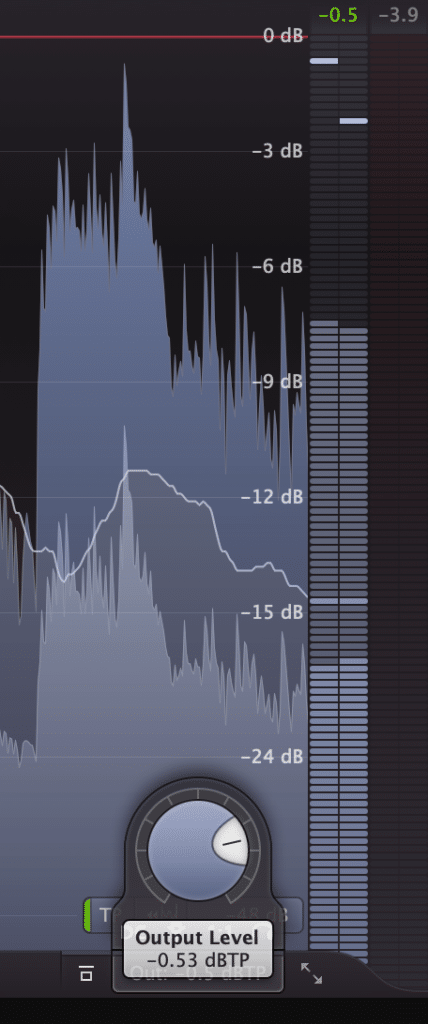
Notice that the output is set to -.5dB. This protects against clipping distortion.
If your limiter allows for it, try to utilize any transient retention functions and to set a slightly longer attack time to retain transients. Also, set the output of your limiter to -.5dB to ensure that no clipping distortion occurs during the online encoding process.
How to Master Hip-Hop Country Music
Hip-Hop influenced country music is still a relatively new country sub-genre, but it has become increasingly popular over the past decade. Utilizing the 808, sampled high-hats and synths, hip-hop country music needs to be mastered in a similar manner to hip-hop music if you want to avoid distortion and other unwanted artifacts that may occur during this type of mastering.
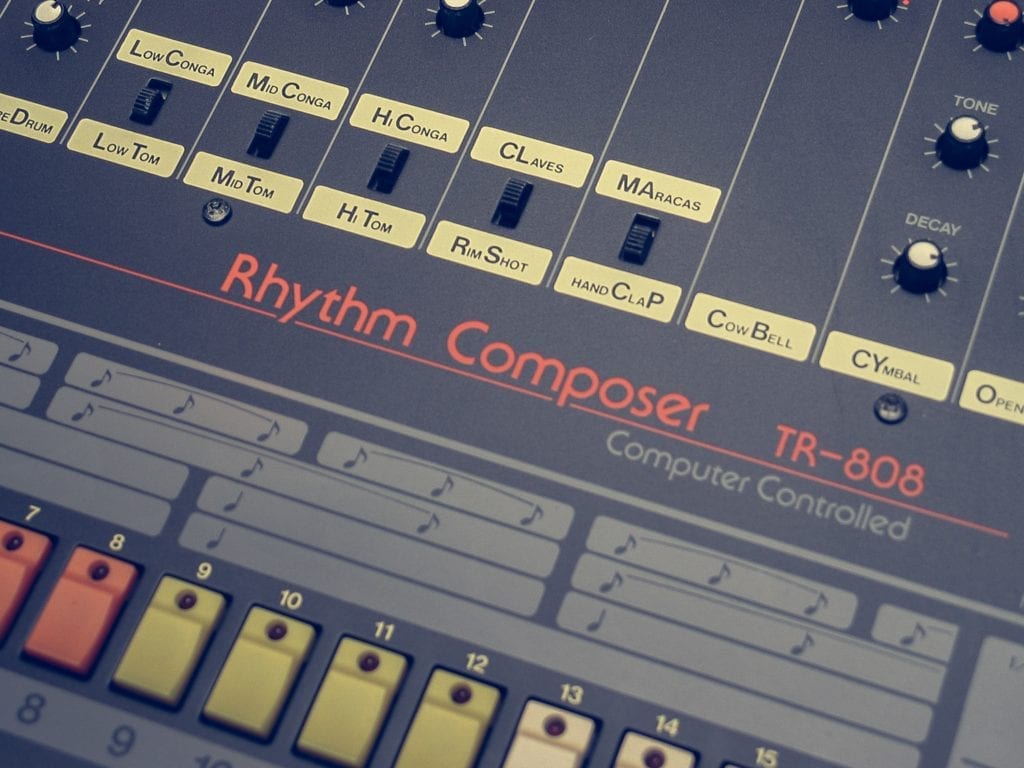
Hip-hop country borrows some important instrumentation from hip-hop like the 808 and sampled drums.
If you want to learn more about Hip-Hop, and how to master for it, check out our blog post here:
It details some of the important aspects of hip-hop music, and what you need to know if you plan to master a hip-hop track.
Compression and Equalization for Hip-Hop Country Music
Similar to pop-country music, more aggressive compression and equalization can be used when mastering hip-hop country music. Some of the instrumentation used will necessitate greater compression and more excessive equalization.
For example, the 808 is a powerful instrument, that if not carefully controlled will lead to distortion and can overwhelm a speaker. If needed, compression can be used to ensure that a particular 808 isn’t too loud , and to balance the amplitude of all 808s in a track.
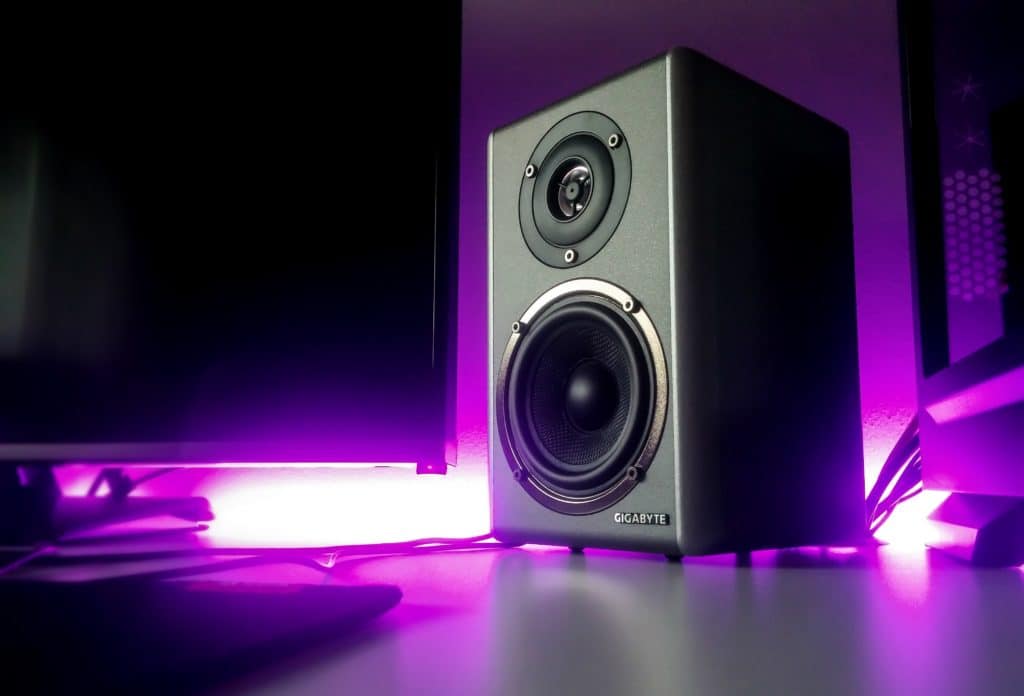
Due to the 808's intense amplitude, it can easily cause distortion if not controlled.
Similarly, the sampled high hat used in hip-hop and hip-hop country music can be accented by amplifying the side frequencies using a mid-side equalizer. At the same time, you can focus your 808 with this equalizer by utilizing a high-pass filter up to roughly 130Hz. on this side image.
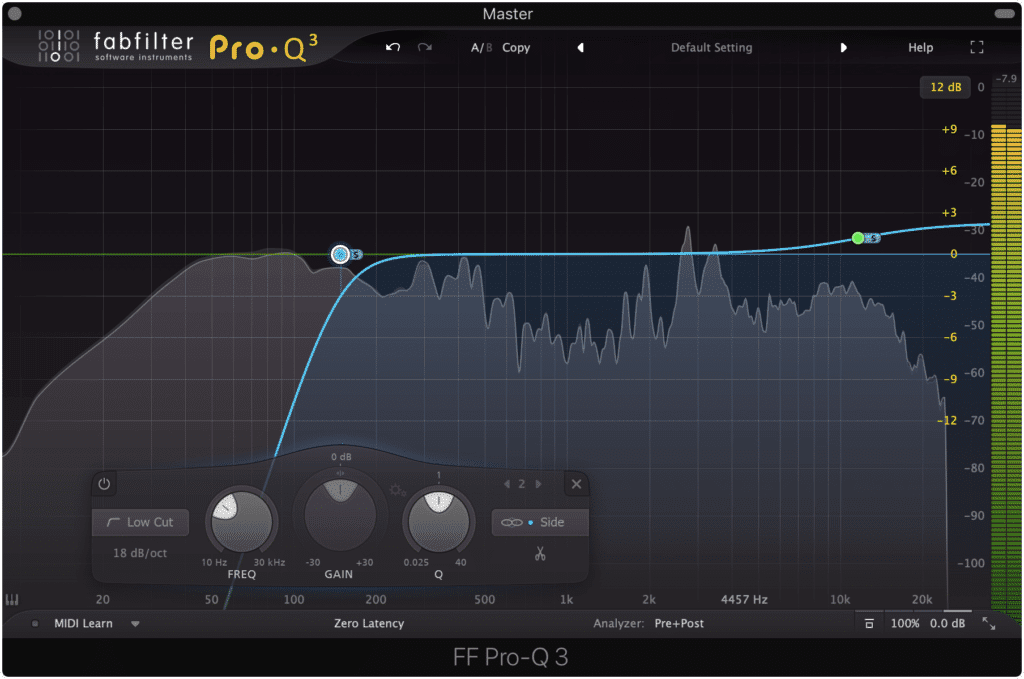
Cutting the side image's low frequencies while amplifying the high will focus the low end and widen your stereo image respectively.
Ultimately, a Hip-hop country master should have an amplified low-end and high-end. Although this may sound unbalanced in another sub-genre, the instrumentation used in hip-hop music lends itself to this frequency response.
Distortion and Harmonic Excitement for Hip-Hop Country Music
Country vocals are almost always the focal point of any country recording. With that said, they are even more susceptible to distortion than the vocals in other genres.

Vocals are upfront in country music, and susceptible to distortion.
Because hip-hop country music utilizes a more extreme frequency response, its a lot more common for unwanted distortion to occur.
Simply put, the increased likelihood of distortion paired with the very present and upfront vocals of this sub-genre means that distortion is both more likely to occur and to be noticed by the listener. With that said, compression will need to be used skillfully to avoid any unwanted clipping distortion.

The 808 can cause noticeable distortion by distorting an upfront country vocal.
Furthermore, any distortion being added to the master will need to be done so carefully. Again, the sub-genre is much more susceptible to unwanted and noticeable distortion, meaning that intentionally added distortion will need to be treated with the same care.
All this to say, be sure to listen to your master intently to ensure that unwanted distortion does not occur and that any intentionally added distortion isn’t having an adverse effect.
Limiting for Hip-Hop Country Music
Similar to mastering pop country music, mastering hip-hop country music includes using a limiter to create a competitive sounding mastering.
This, unfortunately, means sacrificing some dynamics and transients for the sake of a greater overall loudness.
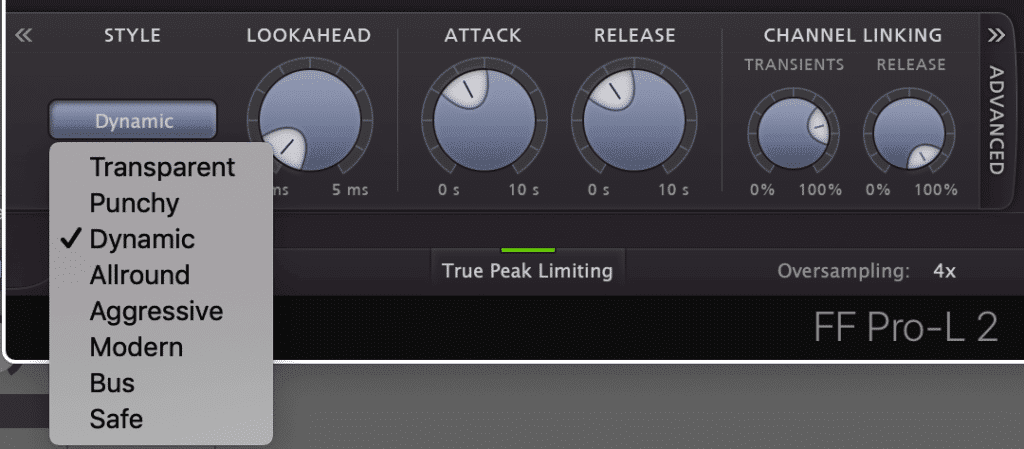
A limiter that offers transient retention and some dynamic-centric compression settings is ideal for hip-hop country music.
If possible, use a limiter that allows for a more dynamic limiting process - one that will retain your dynamics and transients as much as possible.
Additionally, try using 2 limiters back to back in your signal chain , with the processing split between the two of them. This may result in a cleaner sound if you’re having to use one limiter significantly.
Conclusion
Country music is no doubt a diverse genre. In some ways, it closely resembles classical music in its desire for natural-sounding instrumentation, and in others, it closely models the polished pop sound of the modern era.
It seems to be a genre with one foot in the past and one in the present - making the mastering process a little more difficult to discern which way it leans.
With that said, pay close attention to the instrumentation utilized in a country track to best determine how you will go about your mastering session.
If you have a country song you’d like to hear mastered, send it to us here:
We’ll master it for you and send you a sample of it.
Have you ever mastered a country song?




